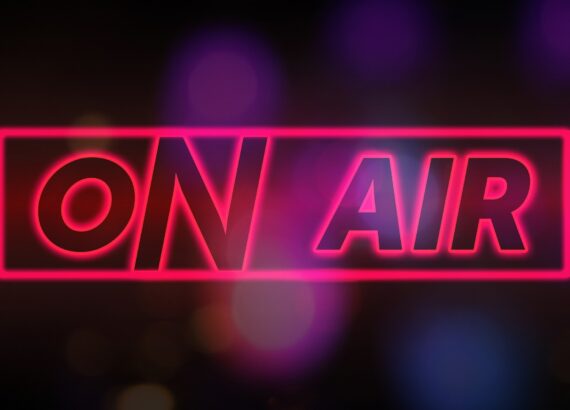Knowledge is power
Another way you can help Ukraine is to set yourself up to stay up-to-date on the war in Ukraine. Why? Because what we advocate for should be informed by facts and analyses. And by being informed ourselves, we can help others around us stay or get informed. This post is long-ish, but please take time to read it and get set up. Knowledge is power!
What I do not suggest for this purpose is spending hours on CNN, BBC, or other similar news sites. Yes, the information they report is accurate but also fragmented. There are smart people and experts synthesizing and analyzing the war every day. Keeping up with their analysis will paint a better picture of the situation, save you time, and minimize doomscrolling.
My top suggestion is to subscribe to the Economist. Even though the magazine itself is weekly, new articles are posted online every day, and they are very good. Here’s an example of a great summary article from this week’s edition (the subtitle “Despite negotiations, there seems to be no end in sight” is itself a great summary). The Economist also has a dedicated Ukraine page. The subscription is not cheap but it’s money well-spent if you can at all afford it (note: I have no financial interest in the Economist!)
Of course, other news outlets (New York Times, Financial Times, Wall Street Journal, etc.) are also publishing good analysis pieces, and I encourage you to look for them regularly if you prefer something other than the Economist.
The Foreign Policy Research Institute has a twice-weekly newsletter on Russia and Ukraine you can subscribe to. You can also sign up for email updates from the Institute for the Study of War. Financial Times is making certain key coverage of Ukraine free to read; you can find it on this page.
If you’re on Twitter, I also suggest following knowledgeable people who are actively covering this war. Many post analysis pieces & op-eds written by them or others; their tweets are also much more informative on average. I provide a suggested list below (just click on the Twitter handle to go to their page), but there are many others. If you’re not on Twitter, some of these individuals have websites and newsletters you can subscribe to that I’ve also noted.
Experts/activists:
- Institute for the Study of War (@TheStudyofWar), policy research organization focused on U.S. national security. Their website is https://www.understandingwar.org/ (you can sign up for email updates).
- Mark Hertling (@MarkHertling), a former US Army officer (Wikipedia page). Also has a website, but people in Europe currently cannot view its contents, so I’m not sure what’s on there.
- Bruno Maçães (@MacaesBruno), former Europe Minister of Portugal and international affairs expert (brief bio). Paid Substack newsletter (with a free option) here.
- Franz-Stefan Gady (@HoansSolo), Research Fellow focused on future conflict and the future of war at the International Institute for Strategic Studies (@IISS_org), a “world-leading authority on global security, political risk and military conflict”.
- Mick Ryan (@WarintheFuture), a newly retired Australian Major General. His Ukraine commentary can be found on this webpage.
- Garry Kasparov (@Kasparov63), Russian chess champion turned activist/writer/political commentator. Website is here.
- Michael Kofman (@KofmanMichael), Director of Russia Studies at the Center for Naval Analyses
- Kamil Galeev (@kamilkazani), Fellow at the Wilson Center, which you should also follow (@WilsonCenter, “The nation’s key non-partisan forum for global issues, independent research, open dialogue, and actionable ideas”).
- Anders Aslund (@anders_aslund), Economist and author, expert on Russia, Ukraine, and Eastern Europe (Wikipedia page).
- Rob Lee (@RALee85), Senior Fellow at Foreign Policy Research Institute, PhD student at the Department of War Studies at King’s College London.
- Wladimir Klitschko (@Klitschko), professional boxer turned activist.
- Timothy Snyder (@TimothyDSnyder), Professor of History at Yale.
Reporters:
- Max Seddon (@maxseddon), Moscow Bureau Chief at Financial Times.
- Illia Ponomarenko (@IAPonomarenko), defense reporter with The Kyiv Independent.
- Shashank Joshi (@shashj), defense editor at The Economist.
- Dan Lamothe (@DanLamothe), military reporter at the Washington Post.
- Isabelle Khurshudyan (@ikhurshudyan), WaPo foreign corressinpondent, now in Ukraine.
- Ian Pannell (@IanPannell), ABC senior foreign correspondent.
- Christopher Miller (@ChristopherJM), BuzzFeed News correspondent covering conflict, crises, and extremism (12+ years in Ukraine & East Europe).
- Julia Ioffe (@juliaioffe), Founding Partner and Washington Correspondent at Puck News.
Regardless of how you prefer to keep up with the evolving situation, I suggest making some sort of plan. Save this blog post, bookmark these links, sign up for article alerts about Ukraine if your favorite news outlet has that option, whatever helps you.
If you’re on Twitter, one tip is that interacting with posts about Ukraine will make similar ones more likely to pop up in your feed in the future!




Comments are closed.